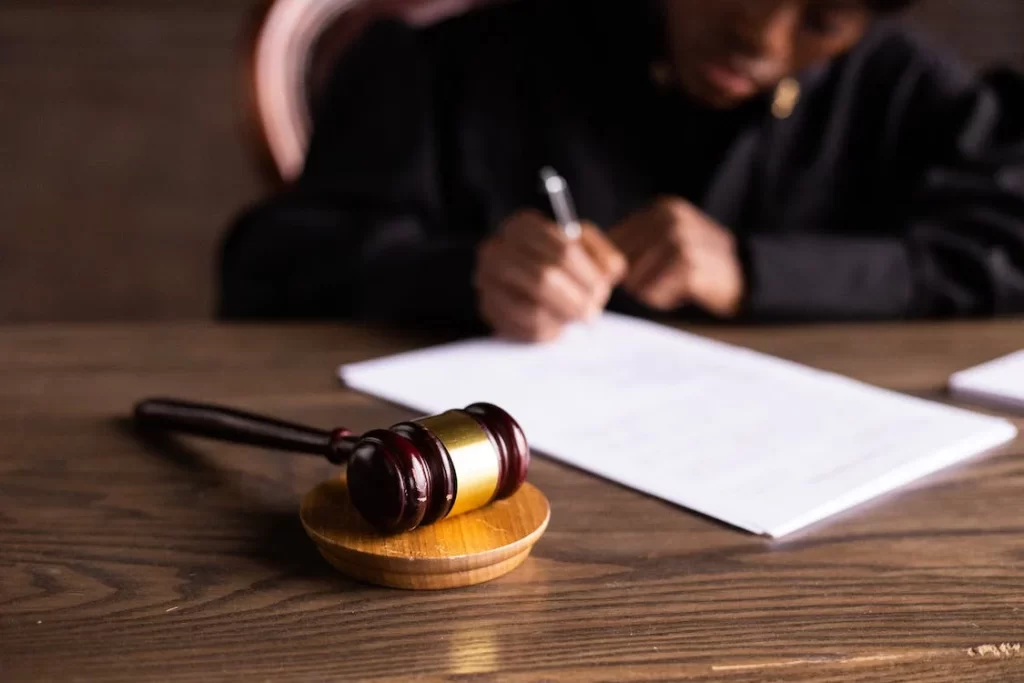Probate must be obtained when a person dies, whether or not the deceased left a will. If a will exists, the executors will apply for a Grant of Probate. If there is no will, a close relative or family member should apply for Letters of Administration as part of the probate process, which gives them authority over the deceased’s estate.
Currently, it takes 4-6 weeks to receive a Grant of Probate or Letters of Administration after filing a probate application. However, for a simple will and estate, the entire probate process, from the date of death to the distribution of the deceased’s estate, takes about six months. The more complicated the estate, The longer it takes, . So, how do you keep track of probate applications in order to monitor their progress?
Applying for probate
Let us first go over how to apply for probate. Most probate applications can be made online through the HM Courts & Tribunals Service, MyHMCTS. You will need the following documents and information to complete the application:
- The original will (if there is one) or annexed will.
- The death certificate.
- The deceased’s full name, address and date of death.
Once you have completed your online application, you must send the above documents to the Probate Service (MyHMCTS) so that your online application can be verified.
You will also need to complete and send the appropriate Inheritance Tax forms to the Probate Service – these are IHT400 and IHT421 inheritance tax forms if the estate is worth more than £5,000 and IHT200 and IHT217 inheritance tax forms if the estate is worth less than £5,000 – who will then send them to HMRC for verification. This means that until HMRC has returned the IHT forms, there will be little progress on your probate application.
There are a few circumstances in which you cannot use the online service to apply for probate. They are as follows:
- A second grant of probate application has been filed for the same estate.
- A foreign will.
- A document proving a copy of the will is attached to the application.
- The applicant is under the age of 25 years.
- The probate application is for resealing under Rule 39 of the Colonial Probates Acts of 1892 and 1927.
Do I need to apply for probate?
In general, if the deceased’s estate is worth more than £5,000, a Grant of Probate or Letters of Administration is required.
If the deceased left a will, the executor(s) apply for probate; otherwise, the next of kin or a close family member must apply for Letters of Administration. This gives them authority over the deceased’s estate.
Letters of Administration are also required in the following situations:
- The entire estate has been left to one person.
- There are no executors named in the will.
- The named executors are unwilling to take on the role.
Only the executor of the deceased’s estate may apply for a Grant of Probate.
However, if the majority of the deceased’s estate is jointly owned with their living spouse or civil partner, such as joint bank accounts or a mortgage, an application for a Grant of Probate may not be required. Other instances in which probate is not required include:
- The estate is worth less than £5,000, and there are no shares or land included. Assume the estate is particularly small, with only a small sum in a bank account. In that case, the bank has the option of requiring a Grant of Probate or Letters of Administration before releasing funds to beneficiaries.
- If you own money, such as bank accounts or property, jointly with your living spouse or civil partner.
If you are unsure whether you need to apply for probate, please contact our team today.
How to track probate applications
You can find out if a Grant of Probate or Letters of Administration has been granted if you are a beneficiary of the deceased’s estate or family, but that is all you can do. To track the progress of a probate application, you must be the person(s) who applied for probate.
You will create login information for your probate application process when you create an online account with MyHMCTS. The probate service updates your record with progress and details each step as it is completed so you can track it. Once probate has been granted, you should purchase a copy of the Grant of Probate (if you did not request one when you applied).
The Grant of Probate will include information critical to the administration of the deceased’s estate, such as:
- The date of death – this is important for the administration of the deceased’s estate.
- Whether the deceased was domiciled in the UK or not – the deceased must have been domiciled in England or Wales for any claims under the Inheritance (Provision for Family and Dependents Act 1975).
- Whether the deceased had a will or died intestate (without a will).
- The names of the executors/administrators who will serve as defendants in any contested will or estate claim.
- The deceased’s estate’s net worth.
- The date probate was granted. Any claims made under the preceding Act must be made within six months of the grant of probate.
Knowing when probate was granted will also give family and/or beneficiaries an idea of how long it will be before they receive their inheritance.


